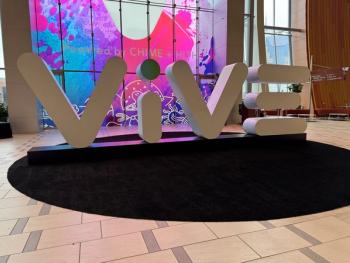
Deep Neural Network Trained on 50K Images Improves MRI Scans
How the artificial intelligence behind AUTOMAP yielded higher-quality images of the brain.
The future of magnetic resonance imaging (MRI) looks bright. One reason: Researchers have developed an image reconstruction process that appears capable of producing better snapshots of the brain, thanks to artificial intelligence (AI) and other technological advancements.
AUTOMAP—short for automated transform by manifold approximation—uses deep neural networks and high-end graphical processing units (GPU) to program a necessary component of some MRI scans, according to the study,
MRI scans and other imaging tools often require the construction of a second scan, a step designed to confirm details contained within the 3-D image. But this process takes time and often requires patients to sit still for minutes as clinicians attempt to reduce “noise,” according to
>>
“Since AUTOMAP is implemented as a feedforward neural network, the speed of image reconstruction is almost instantaneous—just tens of milliseconds,”
Other sorts of image reconstruction techniques call for “time-consuming computational processing,” delaying feedback and sometimes forcing clinicians to repeat the process, Rosen said. “AUTOMAP would provide instant image reconstruction to inform the decision-making process during scanning and could prevent the need for additional visits,” he said.
Researchers fed 50,000 MRI brain scans into the neural network, which essentially taught the technology to reconstruct images going forward, according to the NIH. Next, investigators used an MRI machine to produce images of a “healthy volunteer,” whose brain scans were then reconstructed by AUTOMAP.
The results were strong. AUTOMAP’s signal-to-noise ratio surpassed that of traditional methods, with a score of 21.6 compared to 17.6, according to the study. It was also faster and less prone to error, at 6.7% compared to 10.8%, researchers found.
“Our AI approach is showing remarkable improvements in accuracy and noise reduction and thus can advance a wide range of applications,” Rosen added. “We’re incredibly excited to have the opportunity to roll this out into the clinical space where AUTOMAP can work together with inexpensive GPU-accelerated computers to improve clinical imaging and outcomes.”
The researchers noted that AUTOMAP might go on to help train future AI applications because of its ability to produce high-quality images. According to the Martinos Center for Biomedical Imaging, AUTOMAP’s images could prove especially useful for neural networks designed to aid clinical diagnoses. The NIH said the new technology might also boost imaging speeds—and the benefits could extend beyond healthcare.
Researchers from Massachusetts General Hospital and Harvard University led the project.
Get the best insights in healthcare analytics
Related































